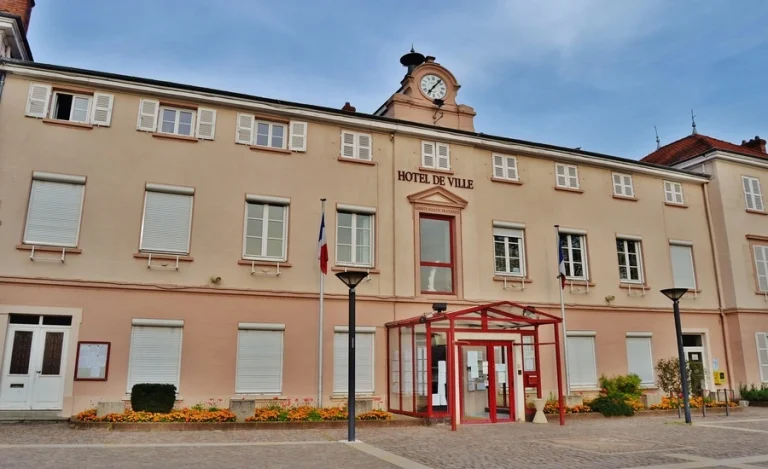The Ultimate Guide to Harnessing the Power of Staģes
Understanding life Staģes is really important for making your way through life effectively. Staģes refer to the different phases of development that people go through as they grow up, like changes in your body, emotions, knowledge, and relationships with others. These Staģes mark big changes or transitions, which shape how you act, the choices you make, and how you interact with people. Once you really understand what Staģes are all about, it helps you learn more about yourself and continue growing as a person.
Another important thing to realize is that your past, present, and future experiences are all connected. It’s not like they are separate things that happen randomly. Your life so far is really a unique story that blends together different parts of who you were and who you are now. This gives your life direction and purpose as you move forward.
It’s also good to appreciate that people go through different Staģes in their lives. This encourages looking at life in a well-rounded way, where you consider all the different parts of your life and what makes you happy. Ultimately, really understanding life Staģes opens you up to the changes, surprises, and pursuing your personal goals as your story unfolds.

Understanding Staģes: What Are They?
However, before we dive into the nitty gritty, let me give you the basics on Staģes. What exactly are Staģes? Simply put, Staģes is an all-encompassing thing that includes set design, lighting, sound, and all that good stuff. It’s about creating environments that transport the audience to different worlds, stir up emotions, and leave them with lasting memories.
Think of a stage like a blank canvas waiting to be turned into a masterpiece. Staģes are the tools and techniques creative folks use to paint that canvas with vibrant colors, intricate details, and captivating stories. From elaborate sets to subtle lighting, everything plays an important part in shaping what the audience takes in.
The Importance of Understanding Developmental Milestones
Understanding life Staģes is key to navigating your journey effectively. Staģes refer to the sequential phases of development we all experience, like physical, emotional, intellectual, and social milestones. These Staģes mark big changes or transitions in life, shaping how we act, decide, and interact. Once you really understand what Staģes are all about, it allows you to focus on self-improvement and growth.
It’s also important to recognize how interconnected each part of our timeline is. The past, present and future don’t exist separately; they’re all part of the unique story that connects each period of our lives. This provides continuity and purpose that carries through.
Appreciating the multi-stage nature of life also promotes holistic thinking. It means considering all aspects of who you are and what makes you happy. Ultimately, understanding the fundamentals of your personal story opens you up to transitions, surprises, and consciously working toward your goals over time.

The Significance of Identifying Staģes
Let me tell you a bit about life Staģes and how they can help us. Identifying where we are in life is really important for self-knowledge and planning ahead. It gives us a chance to see trends in our growth and needs, as well as problems we still face. This helps with making smart decisions and setting goals.
Recognizing our stage can help us prepare for changes, get through transitions, take advantage of opportunities, and deal with challenges more successfully. Organizations can also benefit when they understand where their people are. They can align their strategies, policies and resources to support individuals and help them progress smoothly over time.
When we see that every stage connects to and impacts others, it brings communities together. We start to create equal chances for all. Social justice and a thriving society become more possible as different areas like education, social services and public policy consider life Staģes. The value of understanding Staģes goes beyond any one person or group; it shapes society as a whole.

The 8 Staģes Of Life
Furthermore, I just want to tell you a bit about Erik Erikson’s theory of psychosocial development. Erik Erikson was a well-known psychologist from the 1900s who studied identity and how our social experiences shape who we become. He’s famous for coming up with ideas like the “identity crisis” and describing the different Staģes we all go through in life.
Erikson believed our social interactions are very important. Who we meet and what we experience as we grow up helps determine our personality. He also thought that at each stage of life, we face some kind of challenge. How we deal with these challenges is what pushes us to the next phase of growing up. So according to Erikson, what are the different periods in a person’s life? He identified eight Staģes we typically go through:
- – Infancy
- – Toddlerhood
- – Preschool
- – Early school age
- – Teenage years
- – Your early 20s
- – Your 30s to 50s
- – Late adulthood
When you’re young, you might have big dreams about what you’ll do when you’re older. Kids often imagine being superheroes or the president. But as the years pass, those hopes change into more realistic goals for your future. You start to figure out what really matters to you through your experiences. An eight-year-old’s goals are quite different than those of someone in their 40s, after going through these Staģes of life.
Cognitive and Emotional Growth
The preschool years are such an exciting time for kids! Between ages 3-5, their brains are developing so quickly as they learn new things every day. Kids at this stage are so curious – they’re always asking questions like “why” and “how” to figure out how the world works.
Their thinking is evolving too. With touchscreens and games, they’re picking up early math skills like counting and recognizing numbers and letters. Playtime is so important for helping them be creative and think through problems. Adults can support them and get them thinking even more.
At this age, kids are starting to become more independent. They’re learning right from wrong and how to interact nicely with others. You’ll also see them understanding other people’s feelings more. Preschoolers are also gaining self-control; they’re better at following rules and routines.
The most important thing parents can do is make learning fun for their preschooler. Spending time together and letting them explore helps them develop important social and thinking skills. It’s a super fun age – watching their little minds grow each day is just the best.

Exploring the Key Staģes in Personal Development
So personal development is really about growing through different Staģes in life, right? Each stage brings new challenges and opportunities that shape who you become.
Let’s talk more about some of these Staģes and how they can really change a person. There are three big parts to personal development: discovery, growth, and transformation. Those parts create a roadmap for your life. That roadmap helps you understand what tasks and goals come with each new phase.
Knowing that roadmap is useful because it helps you focus on what’s important now and what to prioritize. It also helps you realize that everyone faces different things at different times. We all have a lot more in common than what sets us apart when it comes to developing over the years.
Really focusing on personal well-being, relationships, and teamwork can make a big difference too. When we support each other, communicate clearly, and solve problems together, it paves the way for stronger bonds and resilience as individuals and as a community.
Common Challenges in Different staģes of Development
In addition, personal development is really interesting. It happens in Staģes that really shape who you become over time. The different periods of life all come with their own challenges, opportunities, and milestones.
Let’s dive deeper into some of these Staģes and how they can impact your growth and happiness. There are basically three parts to personal development: discovery, growth, and transformation. These create a roadmap you can follow through life. This process helps you understand what you need to work on and achieve at each phase.
It also lets you figure out what’s really important now versus what can wait. Plus, looking at the differences and similarities between Staģes helps you realize that others face their own challenges too.
When you focus on people’s emotional and social well-being, clear communication, and team problem-solving, it leads to stronger relationships and resilience overall. Supporting each other through these Staģes of life really pays off.

Key Competencies for Adulthood:
You know, being able to roll with the punches in life is so important. No matter what gets thrown your way, having the strength and flexibility to withstand challenges and change allows us to keep moving forward. It’s what lets us grow as people.
Being adaptable is huge too. None of us can predict what the future holds, so having the flexibility to handle new or unexpected situations is key. It opens doors for both our personal growth and careers.
And don’t even get me started on emotional intelligence! Understanding what we’re feeling and how to manage those emotions helps us make better choices. It also builds stronger relationships.
As we become adults, it’s about taking the reins of our own lives. We have to own our actions and decisions. This part of life is all about sharpening our ability to choose wisely and be answerable for what we do. Laying that foundation sets us up for a really fulfilling and successful future.
Staģes in Professional Growth: A Career Evolution
So professional growth is quite the journey, right? It’s really more like a fun adventure that you get to go on. There are different parts of the adventure that each come with their own cool experiences.
In the beginning, you’re focusing on learning the basics. Things like sending proper work emails or using the right software. But don’t worry, you’ll get the hang of it! As you stick with it, you’ll start gaining more skills and moving into bigger roles.
Before you know it, you could find yourself in a top management position, leading huge projects. Crazy how far you’ve come! The best part is that each new area teaches you something new.
Having an idea of what comes next really helps you plan where to go. It allows you to set small goals for yourself and your career. “Okay, I want to learn how to do ‘X’ skill by this time.” Bam, now you have a roadmap.
Knowing the Staģes takes a lot of stress out of the changes too. Instead of feeling lost, you can feel excited about what’s around the corner. So just enjoy the adventure and see how far it takes you!
Key Aspects of Professional Growth:
Skill Development: learning and honing skills appropriate to each career stage, from foundational abilities to advanced expertise.
Career Planning: Setting achievable objectives and planning career moves strategically.
Experience Acquisition: Gaining practical experience that informs and enhances professional capabilities.
Holistic Career Strategies:
Career Planning: Crafting long-term strategies that integrate personal growth with career goals, including effective networking and lifelong learning.
Adaptability and Agility: Embracing a holistic approach to career development fosters resilience and flexibility, enabling professionals to thrive amidst evolving job markets and industry shifts.
Creating a Progressive Work Environment:
Continuous Learning: Encouraging an ethos of ongoing education and innovation within the workplace.
Teamwork and Innovation: Promoting a culture of collaboration and creativity to enhance proficiency, customer focus, and competitiveness.
Recognizing professional growth as a continuous learning and discovery process allows individuals to flourish in modern, dynamic work environments. By committing to ongoing development, professionals can drive their own success and contribute meaningfully to their organizations.

Initiating Entry-Level Staģes: Building Blocks of Success
Getting your first internship or scholarship is the starting point of your professional journey. It’s all about laying the foundation for bigger things to come. This early stage is about getting all the basics right and learning as you go. You need to figure out how the organization works internally and get used to the company culture and expectations.
It’s smart to look up to experienced people as role models. Take their advice behind the scenes and keep improving your skills. Mastering the fundamentals is key if you want to do well in an entry-level role and set yourself up for success down the road. You have to be humble and accept that early work may not be glamorous. Have curiosity and perseverance to overcome challenges and explore opportunities. That’s an important part of any job.
See these starting positions as stepping stones, not dead ends. Fully commit to what you’re doing and take advantage of the learning. Every experience, even if it’s not perfect, is a chance to grow as a professional. When you nail an entry level role, you also help others become more resilient, adaptable and resourceful. Dealing with uncertainty, setbacks and career changes builds your confidence to navigate what’s ahead with grace.
Conclusion
However, you know, Staģes can be so much more than just backdrops. When done right, they truly elevate a production and immerse you in the story. Whether you’re a total theater nerd or just checking it out, the magic of a stage is universal. So next time you’re at a show, let the stage transport you to a whole new world. In this day and age where creativity meets technology, Staģes lead the way in being cutting edge. Who knows what amazing things they’ll come up with next as they keep raising the bar. So get comfortable and let the enchantment of the stage sweep you away on an adventure you’ll never forget.




